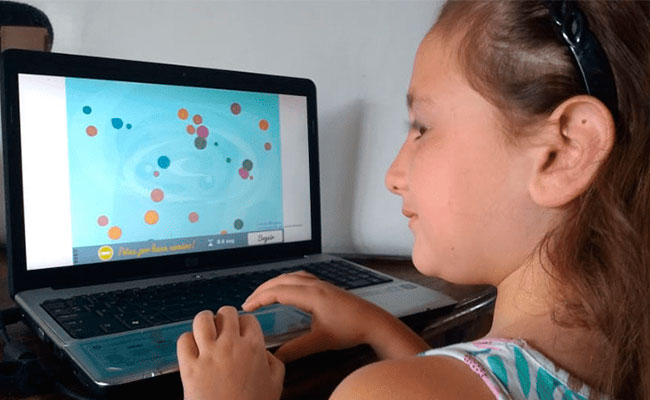What is the Neuropsychological Clinic?
The neuropsychological clinic is based on rehabilitation treatments, stimulation and cognitive training programs through NeuronUP and implementation of behavioral therapeutic techniques and strategies.
To establish a personal profile we must understand the biological nature of our thoughts, emotions, motivations and behaviors. Nowadays, technology allows us to divulge the physiology of behavior.
If we control our cognitive abilities and our emotional world we can consequently achieve our goals or projects.
That is why we stimulate learning, open-mindedness, proactivity, attention focus, processing speed, flexibility, decision making, self-esteem and emotional self-regulation.
For which it is necessary to develop emotional, cognitive and executive resources since the good regulation of these makes it possible to establish positive relationships and is a strong predictor of successful performance.
How do we work in the neuropsychological clinic?
Good luck is not casual but causal. In Dyslexia and Behavior (DC) we work for it.
Working Modality
In DC the working modality consists of the application of neuropsychological training modules following 3 steps:
Step 1
First, the initial interview is conducted, where clinical, family, emotional, psychosocial and learning data are collected. At this stage scales and questionnaires are also provided to be completed by the individual, family and environment. This is how we obtain data from the environmental feedback that we use to complete the consultant’s profile.
Step 2
The Neuropsychological Evaluation is where a complete evaluation is made through different tests. These have an eclectic approach to evaluate superior cortical processes and functions, psychological and behavioral characteristics of the individual.
That is, the evaluation of intellectual functioning, executive functions (fluency, cognitive flexibility, planning and organization), attention, memory, language, spatial, perceptual, constructive and learning skills (reading, writing and numbers).
As well as, the psychological profile, the evaluation of anxiety, the handling of impulses, the capacity of resolution of conflicts, the level of emotional self-regulation, the system of beliefs and thoughts, the modality of interpersonal relation, the neuropsychological abilities applied to the sport performance and the control of thought.
Step 3
Modular neurorehabilitation is a personalized treatment plan where training and stimulation modules are assigned through NeuronUP for each profile. In parallel, in DC we work with the implementation of behavioral therapeutic strategies, individual coaching and family and organizational management.
Cognitive rethinking and cognitive awareness
In addition, we work on these two types of strategies. And when training the emotions, we use techniques such as:
- Visualization: mental imagery/attention
- Positive phrases: positive reinforcement / concentration
- Breathing/relaxation: improves stress, brain irrigation and oxygenation
Goals and objectives achieved in the neuropsychological clinic
Through the stimulation of the cortical areas involved in each profile, and with the implementation of compensatory therapeutic techniques and strategies, this is achieved:
Create bridges
Our brain changes thanks to stimulation since it has the capacity to reorganize, adapt and modify itself. This is due to neuronal neuroplasticity, which is the physical change of our brain from experience and learning. In this way, it is achieved with continuous and explicit training (NeuronUP + therapeutic approach – calculated at 士 35 hours of stimulation).
Knowing coping strategies
And thus strengthen the executive functions, improve self-regulation and change attentional behavior, thus improving processing speed.
Apply learning techniques
Starting from the fact that learning modifies the brain and with the objective of achieving flexible learning, it is possible to compensate, sequence and analyze planning and organizational techniques and strategies.
Managing emotions
Emotions are neural circuits and are therefore subject to the reversibility of neural plasticity. Thus, with training we generate habits to combat negative emotions that provoke an emotional response and increase levels of stress and anxiety.
Neuropsychological clinic in sport
How neuropsychology influences sport and how it works in DC
Psychological variables that influence sports training
In sports neuropsychology we work in DC on the psychological variables that influence sports training, namely:
- Concentration
- Motivation
- Attention
- Anxiety
- Self-confidence
- Planning / Organization
- Memory
- Decision making
How we work in DC the sport neuropsychology clinic
We train in thought control and its influence on sport, as it modifies bad habits, guides and controls attention/concentration and helps to cope with stress. Similarly, it regulates self-confidence, motivation, reduces cognitive anxiety and promotes self-control.
On the other hand, we work on making inappropriate ways of information processing and rigid interpretations of the environment, relationships and ourselves more flexible.
Our goal is focused on change:
- The form
- The frequency
- The intensity of the experiences
To modify:
- Reactive behavior
- Providing full care
- Develop thinking and thinking skills
Thus, with acceptance and commitment, anxieties are regulated, frustration is improved and self-esteem is enhanced, thus improving energy, well-being and motivation, thus creating an enabling environment to exercise self-control.
If you want to know more about our proposal, visit us at dislexiayconducta.com
And if you liked this article about the neuropsychological clinic, you may also be interested in the following articles:
- Reading problems: how to train reading difficulties
- Dyslexia: meaning, symptoms, types and dyslexic activities
- 5p- syndrome and effectiveness of neuropsychological rehabilitation: the story of Sofía
-
-
-
-
